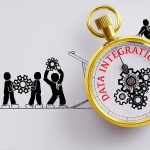Since last decade, the concepts of data center services have changed drastically. The advent of pioneering trends, such as big data, cloud storage, and wearable technology, has opened up newer avenues for businesses to scale their operations, by modifying their existing data centers. Subsequently, organizations are migrating from in-house data centers to public cloud and leased … [Read more...] about 4 Trends That are Shaping the Future for Data Centres in India
Technical
Learn all about technical data and programming and why it's crucial for businesses. Get knowledge on how to collect and use this information to improve your products and services.
What is Federated SSO and How is it Different from SSO?
Federated SSO and SSO may look similar to many people. Cannot blame them as users are only able to see the upper crust of the processes. They need to login with their credentials and enjoys different applications or multiple systems without even repeating the login process. Its a snap! But originally, both techniques work differently. So, do you want to know how federated SSO … [Read more...] about What is Federated SSO and How is it Different from SSO?
Hot Trends in AI Advancements you Should Know
Artificial Intelligence is nothing new, the renewed interest in it, is though. The biggest tech companies in the world are dedicating efforts to the field. Whether it's making smart devices, smart vehicles or voice assistants and robots, every company has its own take on AI. Facebook, Google, Microsoft, Samsung, and more companies are all working on AI in some form. The … [Read more...] about Hot Trends in AI Advancements you Should Know
Real-Time Kafka Data Ingestion into HBase via PySpark
Streaming data is becoming an essential part of every data integration project nowadays, if not a focus requirement, a second nature. Advantages gained from real-time data streaming are so many. To name a few: real-time analytics and decision making, better resource utilization, data pipelining, facilitation for micro-services and much more. Python has many modules out there … [Read more...] about Real-Time Kafka Data Ingestion into HBase via PySpark
How to Perfect Lambda Architecture with Oracle Data Integrator (and Kafka / MapR Streams)
"Lambda architecture is a data-processing architecture designed to handle massive quantities of data by taking advantage of both batch- and stream-processing methods. This approach to architecture attempts to balance latency, throughput, and fault-tolerance by using batch processing to provide comprehensive and accurate views of batch data, while simultaneously using real-time … [Read more...] about How to Perfect Lambda Architecture with Oracle Data Integrator (and Kafka / MapR Streams)
What is technical data?
Technical data can be something as simple as a list of ingredients for a recipe or a more complex set of instructions for assembling a piece of furniture. Technical data can also be mathematical formulas or set points for calibration. No matter what form it takes, technical data is always designed to provide information that will help people to understand and use a particular product or service.
In some cases, technical data may be subject to special regulations, such as those governing the handling of confidential personal information. However, in general, technical data is considered to be publicly available information. Want to learn more about technical data? Datafloq has courses available. Contact us to get started.
What is the purpose of technical data?
Technical data is often used to create engineering drawings or specifications, which are then used to manufacture the product. Technical data can also be used to troubleshoot problems with a product or system.
For example, if a component is not working properly, technicians may refer to the technical data to determine the root cause of the problem. Technical data is an essential part of the product development process and can be very useful for businesses and consumers.
What are examples of technical data?
Technical data refers to the specifications of a product or system, including its performance, dimensions, weight, etc. It is often used in the context of engineering or manufacturing. For example, engineers will consider the vehicle’s weight, aerodynamics, and engine size when designing a new car.
Technical data can also be used to compare different products or systems. For example, if you are trying to decide between two different types of printers, you might look at their printing speed, paper capacity, and resolution.
What is technical data analysis?
Technical data analysis aims to help make better decisions by understanding the data better. Technical data analysis can be used for different purposes, such as predicting future events, identifying trends, or spotting outliers. Many different statistical methods can be used for technical data analysis, and the choice of method will depend on the type of data and the question you are trying to answer.
What is a high-tech startup?
A high-tech startup is a company that uses technology to create new products or services. These startups are usually founded by entrepreneurs with innovative ideas for a new business. Many high-tech startups are based around developing new software or hardware, but some may also focus on creating new medical devices or developing new clean energy technologies.
Whatever their focus, all high-tech startups share a common goal: to bring their innovative ideas to market and create value for their customers.
What is a high-tech business?
A high-tech business is an organization that develops or uses advanced technological processes and products in its operations. Many high-tech businesses are involved in research, development, engineering, and manufacturing. They often work with cutting-edge technologies, such as artificial intelligence, biotechnology, and nanotechnology.
These businesses typically require a highly skilled workforce and substantial investment in research and development. Due to the risky nature of developing new technologies, many high-tech businesses are venture-backed startups. However, some large companies, such as Google and Apple, are also considered high-tech businesses.







